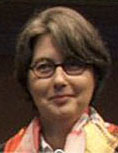Substantial grant from Technology Foundation STW for chronobiologist Martha Merrow
The Board of Technology Foundation STW has approved five new research programmes, including the ONTIME programme led by Professor Martha Merrow, chronobiologist at the University of Groningen. Her research explores ways of repairing disturbances in our biological clock.
The programmes are all part of the STW Perspective Programme, which is funded by the Ministry of Economic Affairs, Agriculture and Innovation. They are in line with the top sectors defined by the present Cabinet and have been approved by the Netherlands Organisation for Scientific Research. The programmes will be particularly useful to the high-tech sector. They will run for six years and involve a budget of between 3 and 6 million euros. STW will invest around 22 million euros and another 6 million euros will come from the business sector.
Technology Foundation STW finances excellent technological-scientific research with good prospects for applications. Every year, STW reserves a special budget for Perspective Programmes. The programmes must revolve around the development of new technology via a multidisciplinary approach, cooperation with (or co-funding from) private parties, and specific activities aimed at valorization and entrepreneurship. By funding Perspective Programmes, STW aims to contribute to solving bottlenecks in innovation and in society.
ONTIME: how to fix a broken clock (in this case biological)

Programme leader is Professor Martha Merrow (University of Groningen). Collaboration project involving two universities, four medical institutes, one knowledge centre, one regional organization and ten companies.
Our body runs on a biological clock; however, as members of a society, we live according to a social clock. Conflicts are unavoidable and the physical organism inevitably runs into problems. Based on recent insight into the performance of the biological clock, it is hoped that the programme will result in a number of different ‘products’ that will enable us to improve our way of life. These will include protocols for synchronizing the two clocks more efficiently and technological devices designed to monitor this synchronization process. They may involve lighting, perhaps even special lamps, with medical user instructions. Or they may involve advice about sleeping, what to eat when (‘neutriceuticals’) and insight into the effects of the biological clock on disease and the effects of medication. All these new insights and products will allow us to perform better at school, at work and at home. We will live longer and more healthily. Everyone with a lamp and an alarm clock will benefit from the results of the programme, and the resulting upward social and economic trends will reflect this.
See also: www.stw.nl
More news
-
17 February 2026
The long search for new physics
-
10 February 2026
Why only a small number of planets are suitable for life
